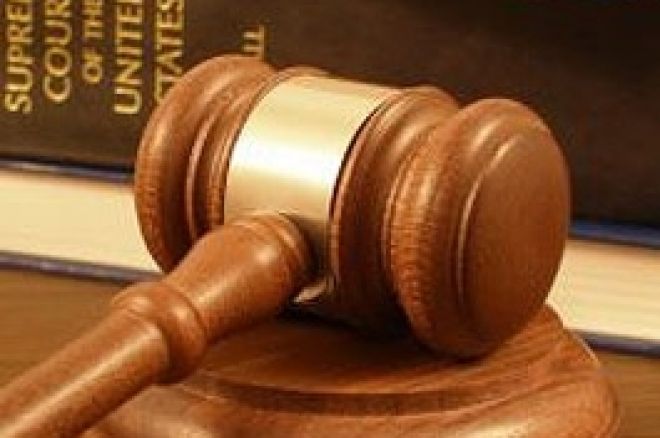Annie Duke, Others Testify at House Judiciary Hearing on Online Gambling

Chairman John Conyers opened up yesterday's House Judiciary Committee Hearing on online gambling by summing up the current state of US internet gambling policy. While acknowledging the social risks of online gambling, Conyers stressed some of the problems and inconsistencies that challenged lawmakers. The issues on the table included the "selective nature" of online gambling enforcement, the competing arguments regarding regulation vs. prohibition, the issue of states rights vs. federal policy, and the imminent risks to US foreign trade relationships.
Supporting Prohibition:
Witnesses voicing a prohibition line of approach for online gambling included ranking Republican member of the Judiciary Committee Lamar Smith, US Representative Bob Goodlatte, and Tom McClusky of the Family Research Council. Although testifying separately, the group offered a fairly consistent argument. Online gambling facilitated criminal activity like money laundering, increased the prevalence of underage gambling, and represented a toll on the families of problem online gamblers.
Also consistent among the online gambling prohibitionists was their citation of the Annenberg Public Policy Center's annual study as an example of the UIGEA's efficacy. They pointed out that the percentage of college age males who reported playing cards for money at least once a week had dropped from 16.3 percent to 4.4 percent from 2006 to 2007. Internet gambling for the same group dropped from 5.8 percent to 1.5 percent. Online gambling opponents failed to mention that the downward trend of card playing among high school and college age youths had actually started in the prior year's survey before the UIGEA's passage, leading Dan Romer, director of the Annenberg Survey, to note that the card playing "fad has peaked."
Supporting Regulation:
US Representative Shelley Berkley and Poker Players Alliance spokesperson Annie Duke spoke on the advantages of regulation. Perhaps the most interesting similarity between Duke and Berkley is that they both, at some point in their lives, supported themselves and their families inside the regulated gambling industry.
Berkley is currently sponsoring a bill in Congress that would fund a study to assess the proper US response to the growth of online gambling; a study she notes that should have been conducted prior to the passage of the UIGEA. The study would examine the practices and technology other nations and international bodies have used to regulate online gambling. It would also study current Federal, State, local and tribal internet gaming laws to better understand where the laws currently conform or conflict with one another. The impact of the UIGEA and the WTO's rulings relative to online gaming would also be examined. In her testimony, Berkley also cited the inconsistent and selective enforcement of online gambling laws, particularly targeting the hypocrisy of the online horse racing UIGEA carve out. She also stressed the looming danger of US foreign trade relations now that the US's online gambling policy has been ruled to be discriminatory by the WTO.
Annie Duke's testimony centered on striving for a policy consistent with the country's founding principles relative to personal freedom and responsibility. Articulately citing Locke, Jefferson and Madison, Duke said, "Having the right to continue to pursue my profession, wherever I might choose to pursue it, is very important to me from both a financial standpoint, but also from the broader perspective of freedom, personal responsibility and civil liberties." As a mother of four, she also stressed that regulation would facilitate and legislate the use of better tools to restrict underage gambling. Michael Colopy of Aristotle Inc later testified about some of the software innovations and products that could be put to use by a regulated online gambling industry.
On the "Law":
Joseph Weiler, head of New York University's Hauser Global Law School, testified that there was "no question in anybody's mind that the ban on internet gambling is a violation of the U.S.'s legal international obligations." He stated that the withdrawal of the U.S.'s commitments regarding internet gambling was setting a dangerous precedent, representing a sizable risk because of the US economy's reliance on its service sector and foreign exports.
Catherine Hanaway, U.S. District Attorney for eastern Missouri, spoke on behalf of the Department of Justice. While Hanaway started her testimony with the Department's position that current laws deem all forms of internet gambling to be illegal, follow-up testimony during the question and answer period found some caveats beneath the DOJ's veneer. For instance she acknowledged that it was not illegal for US residents to gamble online; it was only illegal for companies to provide online gambling services to US residents. She also admitted that there were no laws that specified that online gambling, with the exception of sports betting, was illegal but that the DOJ felt "they were covered." All the legal prosecutions that Hanaway cited during her testimony were sports book related. Conyers pressed on the obvious inconsistencies with the horse racing carve out, asking why she didn't cite any legal action against online horse racing. She stated that she was only mentioning larger legal cases, but couldn't come up with anything related to the online horse racing industry.
Deputy Assistant Secretary Valerie Abend, U.S. Treasury Department took the Committee through the recently released rules proposal for implementing the UIGEA. Abend stressed that the comment period for the proposal was still open until December 12th. She did not mention the November 5th report by the Center for Regulatory Control which found the proposed regulations to be deficient; specifically critical of the estimates of the cost and record keeping burden placed on the banking industry.
This was never going to be a case of one side convincing the other or where a magical breakthrough moment would occur, suddenly making the appropriate US policy for online gambling clear. But yesterday's House Judiciary Committee Hearing went a long way to educate Congress on the many pertinent issues and problems associated with current online gambling policy. The subject is scheduled to get more governmental attention next month when the public comment period ends for the UIGEA rules proposal.








